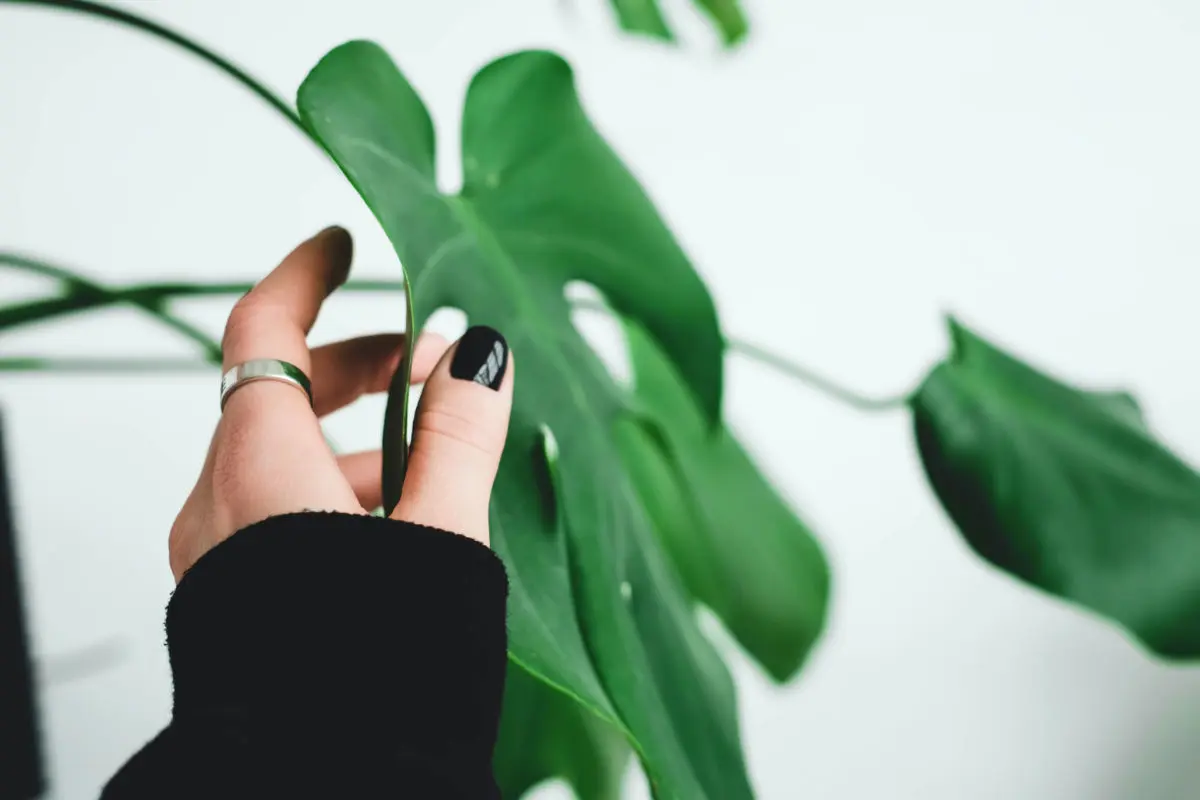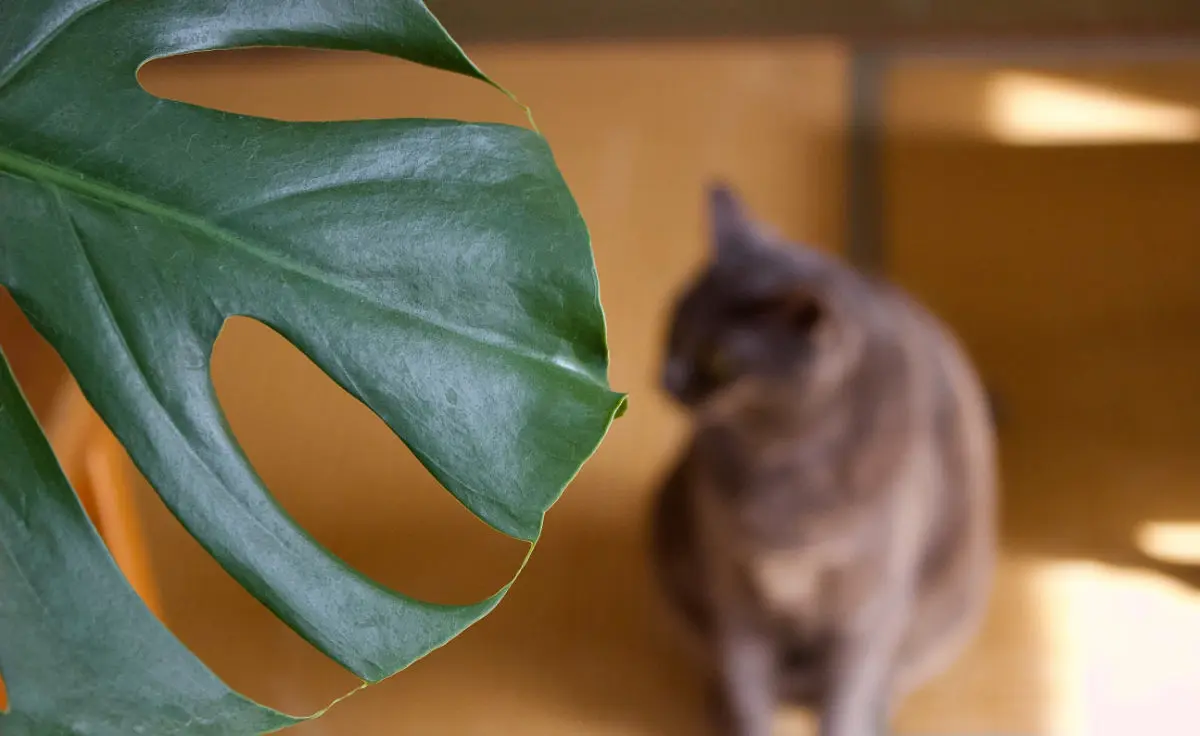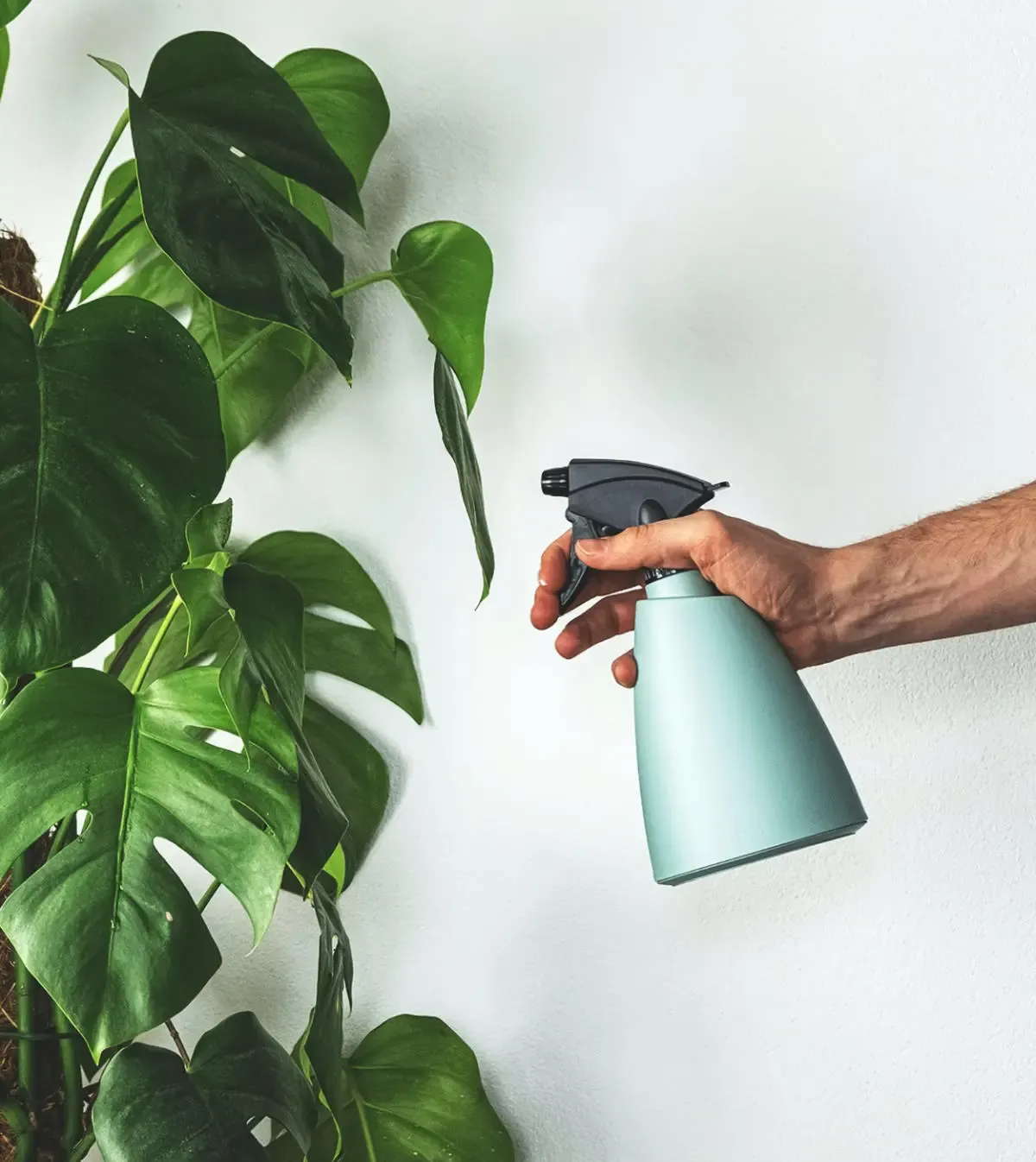Unveiling the Truth: Are Monstera Plants Toxic to Humans?
Monstera plants, also known as Swiss cheese plants, are generally not toxic to humans. However, certain parts of the plant, such as the leaves and stems, can cause mild irritation. Learn more about the potential toxicity of monstera plants and how to handle them.
By Tobias Holm
Are Monstera plants, with their striking leaves and captivating presence, toxic for humans? This article delves into the truth behind the popular houseplant's potential impact on human health.
Monstera plants, also known as Swiss cheese plants, have long been cherished for their unique appearance and ability to add a touch of tropical beauty to any space.
In this article, we analyze the scientific research to provide a clear understanding of the risks Monstera plants may pose. By exploring the potential allergenic properties and toxicity levels of these popular plants, we aim to shed light on whether they are truly harmful or merely victims of exaggerated rumors.
Whether you are a current Monstera plant owner or contemplating adding one to your indoor garden, this article will provide you with the knowledge required to make an informed decision about the safety of these intriguing plants.
So, let's embark on this journey to discover the truth about Monstera plants and their impact on human health.
Common Misconceptions About Monstera Plants
Monstera plants have gained popularity in recent years, but along with their rise in popularity, a number of misconceptions have also emerged.
One common misconception is that Monstera plants are highly toxic and should be avoided at all costs.
While it is true that some plants can be toxic to humans and pets, it is important to understand the specific risks associated with Monstera plants.
Another misconception is that all Monstera plants are the same, with the same potential risks. In reality, there are different species and varieties of Monstera plants, each with its own unique characteristics and potential health implications.
It is crucial to differentiate between these different types of Monstera plants to accurately assess any potential risks they may pose.
Lastly, there is a misconception that all individuals will have the same reaction to Monstera plants. Like any other allergen or irritant, people may have varying sensitivities and reactions to Monstera plants. It is important to consider individual factors when assessing the potential health risks associated with these plants.
Toxicity Concerns Surrounding Monstera Plants
One of the primary concerns surrounding Monstera plants is their potential toxicity.
Some anecdotal reports suggest that contact with Monstera plants can cause skin rashes and irritation. However, it is important to note that not all individuals will have the same reaction. Skin reactions to plants can vary depending on factors such as skin sensitivity and exposure duration.
Additionally, the severity of a reaction can also vary. While some individuals may experience mild irritation, others may have more severe symptoms. It is essential to be aware of these potential reactions and take appropriate precautions, especially if you have a history of allergic reactions to plants or other allergens.
Understanding the Potential Risks of Monstera Plants
To fully understand the potential risks associated with Monstera plants, it is important to explore their chemical composition. Monstera plants contain compounds known as calcium oxalate crystals, which are responsible for their potential irritant properties.
These crystals can cause irritation and discomfort when they come into contact with the skin, eyes, or mucous membranes. However, it is important to note that the concentration of these crystals can vary among different parts of the plant.
For example, the leaves of the Monstera plant are known to contain higher levels of calcium oxalate crystals compared to the stems or roots. This means that direct contact with the leaves may pose a higher risk of irritation.
Understanding the specific risks associated with different parts of the plant can help in minimizing potential health hazards.
Symptoms of Monstera Plant Toxicity in Humans
In some cases, individuals may experience symptoms of Monstera plant toxicity after coming into contact with the plant.
Common symptoms may include skin redness, itching, and irritation. In more severe cases, individuals may develop blisters or swelling.
If the plant's sap comes into contact with the eyes, it can cause eye irritation and redness.
Ingestion of Monstera plant parts can cause digestive issues such as stomach pain, nausea, and vomiting.
It is important to note that these symptoms can vary from person to person and depend on factors such as the individual's sensitivity and the amount of exposure.
If you experience any of these symptoms after coming into contact with a Monstera plant, it is advisable to seek medical attention and discontinue contact with the plant.
Precautions to Take When Owning a Monstera Plant
If you are a Monstera plant owner or are considering adding one to your indoor garden, there are a few precautions you can take to minimize potential health risks.
First and foremost, it is important to handle the plant with care. You can wear gloves or use a barrier, such as a plastic bag when pruning or handling the plant to avoid direct contact with the sap.
It is also advisable to wash your hands thoroughly after handling the plant, especially if you have sensitive skin or a history of allergic reactions.
Keep the plant out of reach of children and pets, as they may be more susceptible to the potential risks associated with Monstera plants.
Lastly, it is important to monitor your own health and be mindful of any symptoms that may arise after contact with the plant.
By taking these precautions, you can enjoy the beauty of your Monstera plant while minimizing the potential risks.
Safe Handling and Care Tips for Monstera Plants
Proper care and maintenance of your Monstera plant can also contribute to minimizing potential health risks.
Ensure that your plant is placed in a well-ventilated area to minimize the concentration of irritants in the air. Regularly clean the leaves of your plant to remove any dust or debris that may accumulate. This can help reduce the potential for skin irritation when coming into contact with the leaves.
Avoid overwatering your Monstera plant, as excessive moisture can encourage the growth of mold or bacteria, which can pose additional health risks.
Lastly, be mindful of the temperature and humidity levels in the area where your Monstera plant is located. Extreme temperatures or high humidity can create an environment where irritants are more likely to be released from the plant.
Alternative Non-Toxic Plant Options for Indoor Gardening
If you are concerned about the potential risks associated with Monstera plants or simply prefer to err on the side of caution, there are plenty of non-toxic plant options available for indoor gardening.
Some popular non-toxic plant choices include spider plants, Boston ferns, and peace lilies. These plants can add beauty and greenery to your indoor space without the potential health risks associated with Monstera plants.
It is always a good idea to research the specific care requirements of any plant you consider adding to your indoor garden to ensure it is a good fit for your space and lifestyle. By exploring alternative non-toxic plant options, you can find the perfect fit for your indoor gardening needs while keeping potential health risks at bay.
Debunking Myths About Monstera Plant Toxicity
With the rise of social media and anecdotal reports, myths and exaggerations about Monstera plant toxicity have become prevalent.
It is important to separate fact from fiction and rely on scientific research when assessing the potential risks associated with these plants. While Monstera plants do contain compounds that can cause irritation and discomfort, the severity of any reaction will vary from person to person.
By following proper care and handling techniques, the potential risks associated with Monstera plants can be minimized. It is also important to remember that, like any plant or natural product, individual sensitivities can vary. What may cause a reaction in one person may have no effect on another.
By debunking the myths surrounding Monstera plant toxicity, we can make informed decisions and enjoy the beauty of these plants without unnecessary fear or worry.
Conclusion and Final Thoughts
In conclusion, Monstera plants are not inherently dangerous to human health, but they do come with potential risks that should be considered.
Understanding the specific risks associated with Monstera plants, such as the presence of calcium oxalate crystals, can help minimize potential health hazards.
By taking precautions when handling and caring for Monstera plants, such as wearing gloves and washing hands after contact, the likelihood of experiencing adverse reactions can be reduced. It is also important to be aware of individual sensitivities and monitor any symptoms that may arise after contact with these plants.
If you have concerns or a history of allergic reactions, it may be advisable to explore alternative non-toxic plant options.
Ultimately, the decision to own a Monstera plant should be based on individual circumstances and personal preferences. With proper care and attention, Monstera plants can continue to bring beauty and joy to our indoor spaces without compromising our health.



